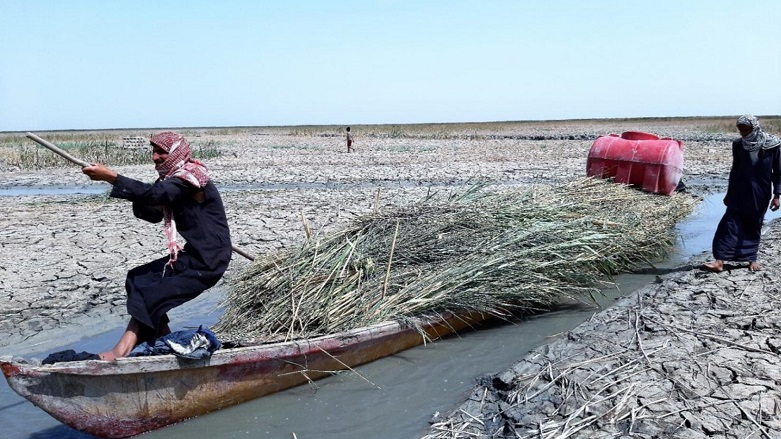Iraqi marshes cannot wait: FAO

ERBIL (Kurdistan 24) – Amid an unprecedented drop in water, the Food and Agriculture Organization of the United Nations (FAO) sounded an alarm in Iraq, stressing that "the marshes cannot wait", while calling for urgent actions to help buffalo breeders cope with climate change and water shortage.
The organization renewed its commitment to "supporting local communities, especially buffalo producers in the Iraqi marshes, the tragic situation of local rural communities has witnessed a sharp deterioration, especially buffalo breeders who suffer from unprecedented low levels of water in areas that threaten their livelihoods.”
The marshes are one of the poorest areas in Iraq which are mostly affected by climate change and water shortages, causing catastrophic effects on the livelihoods of more than 6,000 rural families as they lost their buffalo, their unique living asset, according to FAO.
The number of buffalo breeders who are leaving in these areas has decreased. Some have migrated to nearby areas and provinces such as Kut, Samawah, Najaf, Karbala and Shatrah, where water is available, while some buffalo breeders sold their animals at low prices to buy food for the rest of their livestock.
Others turned to other livelihood professions because they lost their livelihood assets as the buffaloes are increasingly dying while getting stuck in the swamp mud when trying to swim or reach the grazing cane, in addition to reduced production of buffalo milk, lower selling prices and a deterioration in their health due to the lack of food in the marshes, according to the United Nations.
FAO in Iraq called for "urgent and consistent support for buffalo breeders, such as providing water by water tanks, fodder and diesel for boats in the Iraqi marshes," stressing that "without rapid intervention from national and international actors, farmers who have lived there for generations will have to abandon their lands forever.
The organization urged the "implementation of a medium and long-term strategy with sustainable activities that show good prospects for providing relief to the affected areas and the breeders of buffaloes so that they can continue to live in these areas."
FAO also called for "the allocation of more financial resources from donors and the international community to assist vulnerable communities that have been severely affected by the lack of water level and climate change in the Iraqi Marshes and for more cooperation with the Iraqi government and local partners to reduce the impact of the crisis."
Furthermore, FAO has already started, in coordination with the Iraqi Ministry of Agriculture, emergency support targeting 5,000 farmers by providing them with fodder.
Edited by NA
